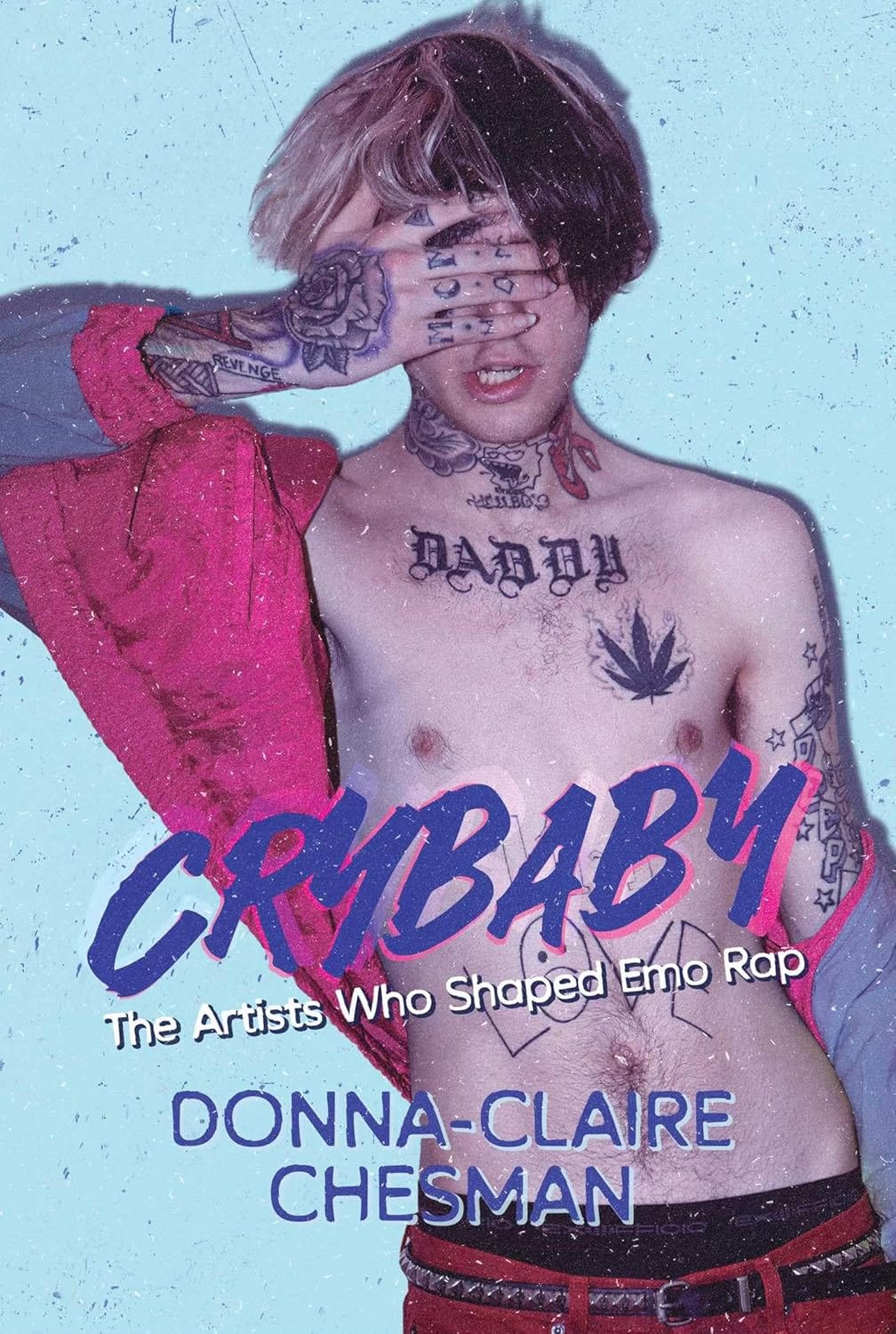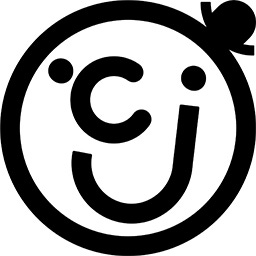Q+A: Donna-Claire Chesman on How CRYBABY Came to Her in a Dream
Interview with a two-time author!
We’re proud to present this week’s Q+A with author Donna-Claire Chesman, who released her second book, CRYBABY: The Artists Who Shaped Emo Rap, in January!
Tamara Palmer/Music Book Club: What is the life story of CRYBABY? How long did it take you to complete, and what was your process like?
Donna-Claire Chesman: Like most of the major decisions in my life, CRYBABY came to me in a dream. I woke up a few weeks before BOOK OF MAC was to be published in October of 2021 and had the remnants of a dream where I was writing about Lil Peep swirling in my head. That morning, I opened up a small notebook and just started jotting down ideas. I ended up writing around 10,000 words of notes just on Lil Peep’s music and impact, and that’s when I knew I had something percolating. The earliest of these words were written in September, in a guest room in Lancaster, PA.
Eventually, I reached out to my agent and started pitching him on ideas based on those 10,000 words. Originally, the book concept had a much deeper reliance on the pandemic micro-scenes that were popping up and I had just under 8,000 words written about Brakence’s debut project. Most of that didn’t make it into CRYBABY, but some did, and I think it was an important stepping stone to understanding what I was trying to achieve.
You may notice by now that I had written nearly 20,000 words of sketches before starting a proper manuscript. I am kind of a crazy person with writing books. I barely outline—this is a bad practice and I encourage people to outline things—and instead I learn about my structure and my actual narrative by just sitting down and writing, and writing, and never deleting, and hoping, and talking to myself. I have a separate file in my folders for “sketches” of decided-upon book projects where I just riff and let ideas happen. The actual manuscript draft is more formal and I don’t go too off the rails in that document.
The actual writing for CRYBABY was contracted for 18 months. I wanted two years, but mostly because I was nervous I couldn’t write a book since when we sold the proposal, I was firmly in the “sketches phase” and not in the “start a draft now, please,” phase. I went through a lot of ups and downs with the process, from quitting my music industry job to a lot of financial duress, to just an overwhelming lack of confidence. I write every day for at least 15 minutes, and a lot of CRYBABY’s 15 minutes were spent feeling sorry for myself.
Eventually, I got over my own sorrow and found a great groove. The challenge was figuring out the architectural foundation of the book. Are we going by song, by album, by year, or by artist? I kept painting myself into corners and spent an entire drive to a beach vacation with my wife talking about this, and after nearly three hours in the car, I landed on the structure for CRYBABY you see published, and my wife was thrilled I’d never mention it again.
There was one moment where I sat in our living room and lamented about how I am on deadline, and I am going to miss said deadline, and I’ve never missed a deadline before, and writing is too hard, and I am incapable, and I went on and on and my wife simply said, “just go write.” It wasn’t dismissive in the least and was the exact thing I needed to hear. I think I wrote 5,000 words that day.
How has the reception been to it?
I actually don’t know! I am largely off all the socials where I have an audience. I use Instagram because I love taking photos and funnily enough, I use Threads because there’s a nice community there to talk Phillies baseball. Unlike with BOOK OF MAC, where I was moment-to-moment watching sales ranks and looking at notifications, and feeding a high of attention, with CRYBABY, I have truly no idea if anyone liked the book, read the book, or wants to read the book. I kind of love that. Something about MAC being so immediately successful introduced a lot of pressure unto me and I’d rather be humble and oblivious and just write the next book.
I will say this: a handful of folks close to the artists covered in CRYBABY have expressed appreciation for how I wrote about those musicians, and that is priceless.
Since you also wrote a book about the late Mac Miller, I am curious between him and the artists featured in CRYBABY who have passed, which posthumous business legacy do you feel has been handled most respectfully?
I’ll start by saying that no parent, widow, friend, and the like should be good at managing the estate of a late artist. It is an impossible task and especially with the artists in CRYBABY who all died young, it is doubly painful. I really can’t imagine the toll. So all the respect in the world for the people who grieve and make business decisions at the same time.
Of course, I spoke with Liza, Lil Peep’s mother, for CRYBABY. I’ve also openly expressed how impressed I am with how she has handled Peep’s legacy and formally releasing old music, crediting artists who worked with Peep while he was still alive, and so on. It is tremendous work that means so much to literally millions of kids, but it is hard work and I would be lying if I said I understood the depth of it all.
You talk about writing a new book in your newsletter — what can you share about it right now?
I have a completed third music book that is currently on sub. I can’t say much there since I am extremely superstitious, but wish me luck! I would like to sell it since I spent the last two years working on it every single day. It is the most collaborative book project I’ve ever done, and I had a really great time putting it together. My agent described it as the best writing I’d ever done, and that is high praise because he really knows his stuff! Thanks, Dave.
As well, I am working on a fantasy kid lit series. I finished the first book in the series in April and am writing the second book now. It’s about a band of friends who live in a fishing village that is so lovely except—one small problem—a sea monster that swallows memories lives in the waters. Like everything else I’ve ever written, it’s about grief and memories, and what it means to deeply miss someone. The first book is called The Boat Eater, and is based off a Pushcart-nominated short story I published 10 years ago. The second book has no title because I need to finish it. There may be a third book, but that remains to be seen.
I think working on children’s fiction so seriously has changed my relationship to writing, reading, and how I interface with language. You really have to be impeccable with your words and think harder than you ever have before about your audience. As we get to the point where the third music book hopefully sells and I need to edit it and such, I think I’m more prepared than ever to be a better writer than I was even yesterday.
And I’d be remiss not to shout out that I do have a small press fiction debut coming in October from Stanchion Books. It’s called SHOULDN’T WE DANCE? and is also about grief and memory, but this time there’s space knights.
Do you have any favorite music books (past or present) that you'd recommend to our readers?
When we sold CRYBABY, I read Come as You Are: The Story of Nirvana by Michael Azerrad and Nothing Feels Good by Andy Greenwald over again to prepare myself. Those books are landmark texts for me, but beyond them I have to of course talk about Hanif Abdurraqib’s They Can't Kill Us Until They Kill Us which was foundational to me understanding my writing style does have an audience. Hanif also spoke with me for CRYBABY, and is incredibly generous. Finally, This Woman's Work: Essays on Music is required reading for everyone—I don’t make the rules.
Previously in our Q+A series:
Cary Baker on His First Book and How Busking Can Help Main Street USA
Gina Arnold on The Oxford Handbook of Punk Rock and Working with Academic Publishers
Tom Beaujour on His New Lollapalooza Book and Producing Successful Oral Histories
John Morrison on Boyz II Men and Chronicling Philadelphia Music History
Lyndsey Parker on Writing a 'Stranger Than Fiction' Memoir with Mercy Fontenot
Christina Ward on Running Feral House, a 36-Year-Old Indie Book Company
Ali Smith on Speedball Baby and Telling Stories Without Shame
Arusa Qureshi on Her Love Letter to Women in UK Hip-Hop
Lily Moayeri on Her Favorite Music Books and Writing from a Personal Place
Megan Volpert on Why Alanis Morissette Matters and Writing 15 Books in 18 Years
Mark Swartz on Biggie + Yoko Ono as a Crime-Fighting Duo and Other Fictional Ideas
Annie Zaleski on Cher, Stevie Nicks and Pushing Past Writing Fears
Nelson George on His Next Book and Making Mixtapes in Paper Form
Michaelangelo Matos on Writing and Editing Music Books










This was a blast. Thanks for having me!